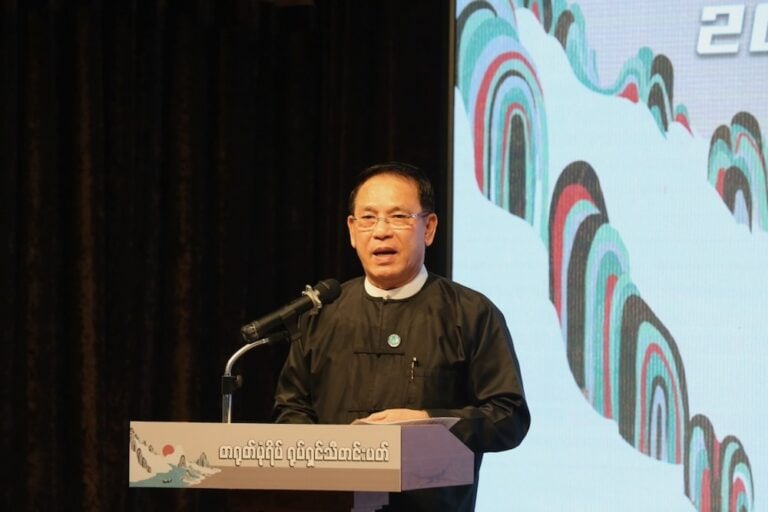(Mizzima/IFEX) – The following is a statement from Mizzima News, an interim member of IFEX: Mock ad in “Myanmar Times” ushers in stringent regulations A mock advertisement placed by Danish political satirists in the 23 July 2007 issue of “The Myanmar Times” lampooning the Burmese junta supremo did not amuse the censorship board, which retaliated […]
(Mizzima/IFEX) – The following is a statement from Mizzima News, an interim member of IFEX:
Mock ad in “Myanmar Times” ushers in stringent regulations
A mock advertisement placed by Danish political satirists in the 23 July 2007 issue of “The Myanmar Times” lampooning the Burmese junta supremo did not amuse the censorship board, which retaliated by further tightening the already rigid regulations on media advertisements.
On 31 July 2007, Maj Tint Swe, the head of the Press Scrutiny and Registration Board, summoned representatives of 25 journals and magazines to inform them of a new 28-point regulation, warning that those who flout the rules would be stripped of their press licences.
The new guidelines stipulated that advertisements would only be accepted in either Burmese or English, the only two languages familiar to the censorship board. Advertisements would have to include the full name and address of the company placing them and the respective journals would shoulder the responsibility for the “correctness” of any insertion.
The fake advertisement, the brainchild of Danish artists Pia Bertelsen and Jan Egesborg, had a Danish-looking word – “Ewhsnahtrellik” – which, when read backwards, said: “Killer Than Shwe” (referring to the Burmese military head). Apparently inviting Scandinavian tourists to visit Burma, the fake advertisement also incorporated a poem, with the first letters of each line spelling: “Freedom”.
On 24 July, special police interrogated at least 10 “Myanmar Times” staff, including those from advertising and marketing, over the advertisement, but took no further action against them. Details of the interrogation remain sketchy as the development is still recent.
Journalists and reporters in Burma said the regulations are uncalled for and restrict freedom of the press as a whole.
According to wire agency AFP, the Danish duo, calling themselves the Surrend, did it as a way of criticising autocrats, replicating their successes in Iran and the former Yugoslavia.


